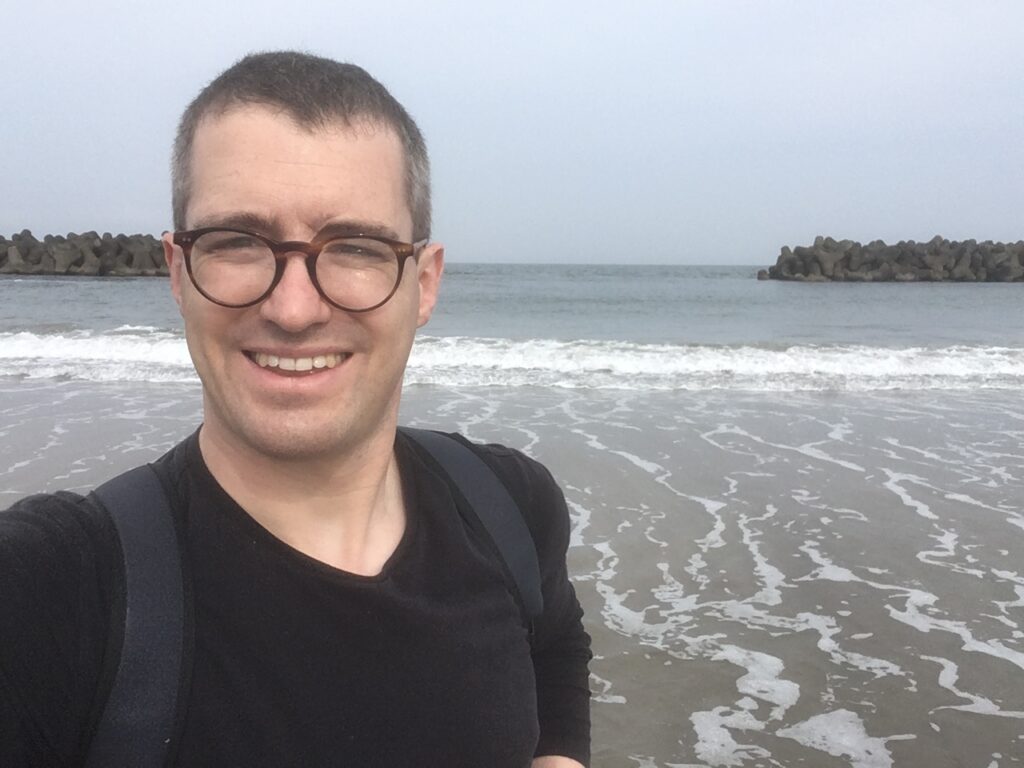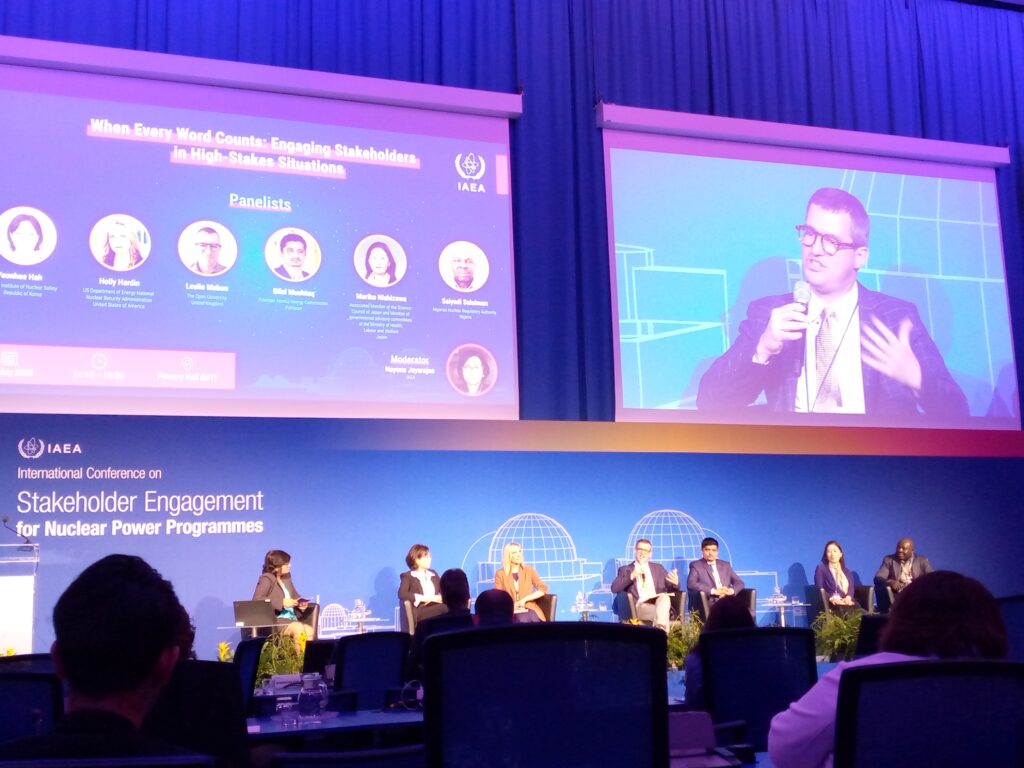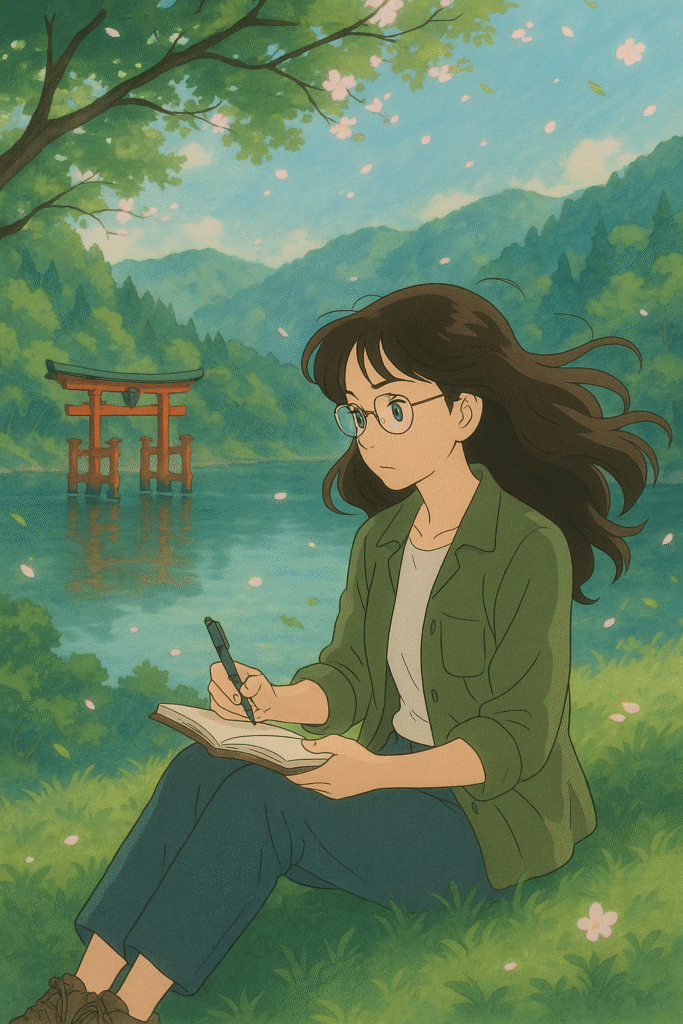See how JFEC-supported scholars are advancing knowledge and driving change.
If you have been awarded by JFEC and want to be featured on our page, please send us an email. Click on the Contact Us link above.
Leslie Mabon: JFEC Scholar Spotlight

Leslie Mabon, is a Senior Lecturer in Environmental Systems in the School of Engineering and Innovation at the Open University. leslie.mabon@open.ac.uk
Our school is very interdisciplinary, and I am a social scientist with a background in human geography. The big question my research focuses on is whose knowledge is prioritised – and why – when our society makes decisions about the environment. I’ve been doing research in Japan for over a decade, studying social and cultural aspects of a breadth of issues including the closure of coal mines in Yubari and Iwaki, urban planning responses to extreme hot weather in Fukuoka, and the emergence of offshore wind farms in Nagasaki. My work draws on a combination of archival, interview and observation-based research.
One of the topics I’ve been working on for longest is the effect of the Fukushima Dai’ichi nuclear accident on fishing and coastal communities in Fukushima Prefecture. This is research that I’ve been undertaking since 2014 in collaboration with colleagues from Tokyo University of Marine Science and Technology and Fukushima Prefecture’s Fisheries and Marine Science Research Centre. Coastal fisheries in Fukushima Prefecture were suspended after the 2011 earthquake, tsunami and nuclear accident, but gradually restarted as infrastructure was rebuilt and understanding of radioactivity in seafood and the marine environment improved. Over the years, we’ve been following how people living on the Fukushima coast and working in coastal fisheries – not just fishers, but also fisheries cooperative staff, managers, brokers, wholesalers and even scientists – have experienced changes in their daily lives because of the accident and subsequent efforts to revitalise Fukushima fisheries.
The decision to release treated water – water that had been treated to remove the most radioactive substances before being stored on-site at the Fukushima Dai’ichi plant – into the Pacific Ocean in 2023 became a major source of controversy, not least because Fukushima’s coastal fishing cooperatives believed the releases could set back the recovery of Fukushima fisheries if they negatively impacted on fish safety or prices. JFEC funding supported my travel within Japan for two rounds of fieldwork on the Fukushima coast, one immediately before the releases commenced and one six months after the releases started. This enabled us to travel all up and down the Fukushima coast, and even to Toyosu fish market in Tokyo, where we interviewed fishers, cooperative staff, cooperative board members, brokers, wholesalers and regional government scientists. One of the themes we heard consistently from the people we spoke with was that fishing was not just a job, but rather was a core part of their sense of who they were. In response to the treated water releases, fishers and cooperative workers in particular felt they had to assume responsibility for ensuring the safety, reputation and quality of Fukushima fish, and therefore ‘defending’ the Fukushima coast for current and future generations.

Our findings were recently published in Environmental Policy and Governance, and in May 2025 I was a panellist at the International Atomic Energy Agency’s International Conference on Stakeholder Engagement for Nuclear Power Programmes. This was a major event attended by many government officials overseeing nuclear programmes as well as the IAEA themselves, and my contribution was based on insights from the JFEC-supported fieldwork I had carried out.
My background is perhaps not what you might think of as a typical Japanese Studies profile. However, through my research and policy work, I’ve come to realise that the ways of working I’ve developed through engaging with Japanese Studies have helped to yield very rich insights about how a changing environment affects people, place and culture.
Read the findings from Leslie and colleagues’ JFEC-supported work at: Mabon L, Kawabe M, Nakahara N and Lou X (2025) ‘Relational responsibility and host communities in complex and contentious environmental situations: coastal fisheries and treated water at the Fukushima Dai’ichi nuclear plant, Japan’ Environmental Policy and Governance DOI: 10.1002/eet.70003
